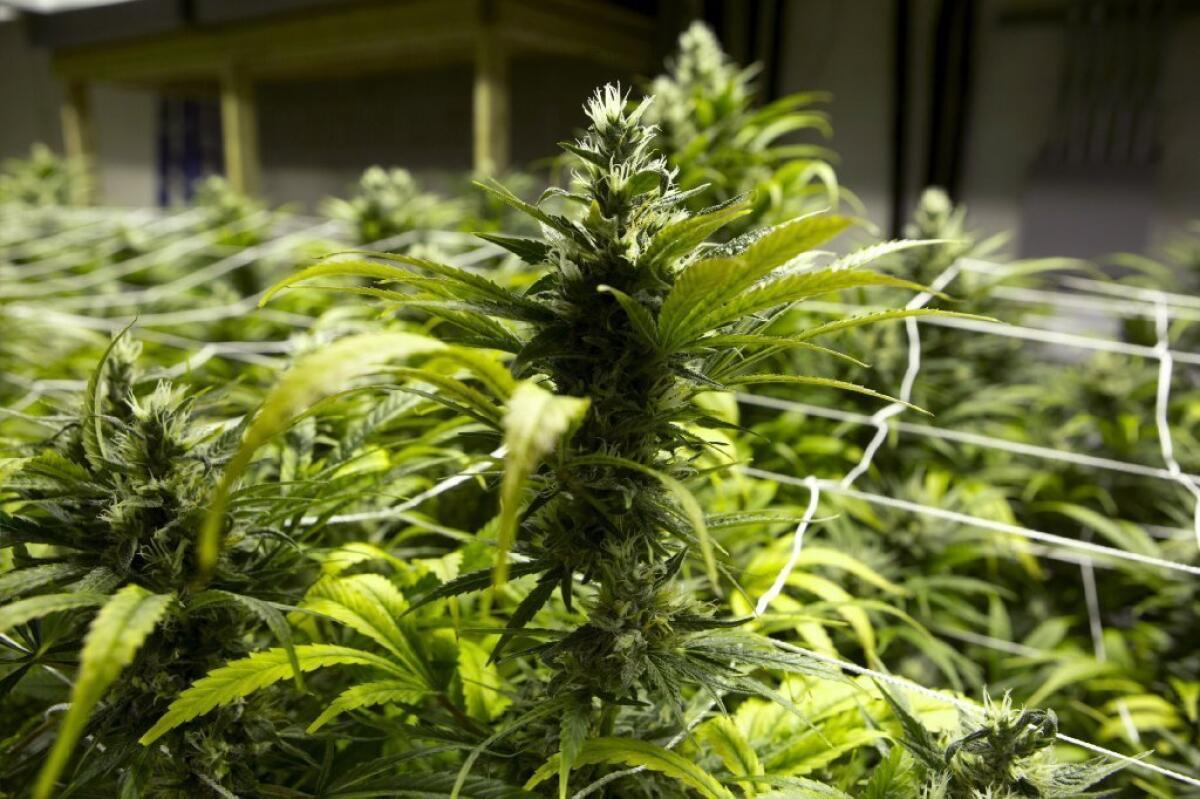The DEA’s pot defense [Blowback]

Reacting to a federal appellate court decision upholding the U.S. Drug Enforcement Administration’s denial of reclassification of marijuana, The Times states in its Jan. 25 editorial that whether marijuana should be reclassified under federal law to permit its prescription as a medicine should be based on science and an evaluation of the facts, rather than on myths. I fully agree.
And yet the editorial is based on the myth that the DEA has made it “nearly impossible” for researchers to obtain marijuana for such scientific studies. To the contrary, not a single scientifically valid study by a qualified researcher has ever been denied by the DEA or, for that matter, by the National Institute of Drug Abuse. And there is ample government-grown marijuana, specifically for research, available at the marijuana farm run by the University of Mississippi. More surprising, as your editorial points out, is that there is still no scientifically valid study that proves that marijuana is effective, much less safe, as a medicine.
As the DEA administrator 20 years ago, I denied the reclassification of marijuana from a Schedule I controlled drug because there were no valid scientific studies showing that smoking marijuana was an effective medicine. In my decision, published in the Federal Register, I interpreted federal law and set forth a five-part test that included whether there were valid scientific studies demonstrating that marijuana was safe and effective for treating any medical condition. I noted that at that time there were none of the kind of controlled, double-blind studies that the Food and Drug Administration would require before approving a new drug application, and I clearly spelled out that this would be necessary before marijuana would be reclassified to a lower schedule that would permit its use as a physician-prescribed medicine.
Essentially, I invited those who advocate marijuana use as a medicine to conduct research and then present it to the DEA. I laid out a road map for what they needed to do. If scientifically valid studies demonstrated that marijuana was “effective” and “safe,” as the FDA defines those terms, the agency would reclassify marijuana into one of the other schedules. It is amazing that 20 years later there is still no such scientific study establishing that marijuana is effective as a medicine. And yet in the interim, the well-funded marijuana lobby, including the National Assn. for the Reform of Marijuana Laws and others, have spent tens of millions of dollars on convincing voters to pass medical marijuana initiatives based on anecdotes but not science.
The reason the FDA and the DEA have scientific standards is because snake-oil salesmen are able to sell just about anything to sick people without any scientific proof that it has a truly helpful therapeutic effect. If proponents of medical marijuana had invested even a small fragment of their money in scientifically valid studies, we would know one way or the other whether it works.
One can only conclude the marijuana proponents did not go this route because doing so would have shown that cannabis is not an effective and safe medicine. Alternatively, we are left to conclude that their agenda was not about marijuana to help sick people, but rather was getting voters to pass medical marijuana initiatives as a wedge to legalize the drug for “recreational” use.
ALSO:
Note to cats: Lay off the birds
The Los Angeles archdiocese can’t seem to play by the rules
Robert Bonner is a former DEA administrator.
If you would like to write a full-length response to a recent Times article, editorial or Op-Ed and would like to participate in Blowback, here are our FAQs and submission policy.
More to Read
A cure for the common opinion
Get thought-provoking perspectives with our weekly newsletter.
You may occasionally receive promotional content from the Los Angeles Times.










